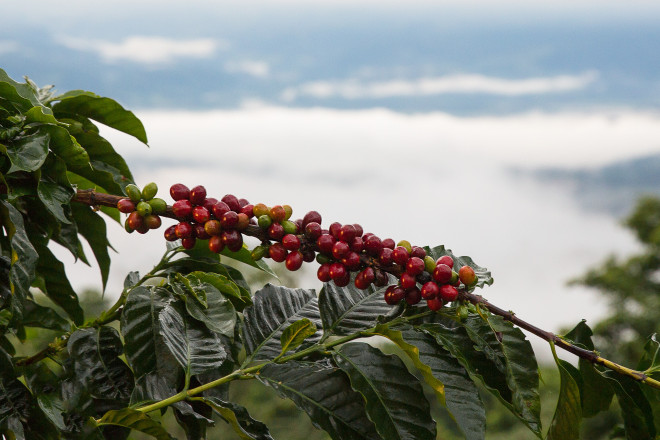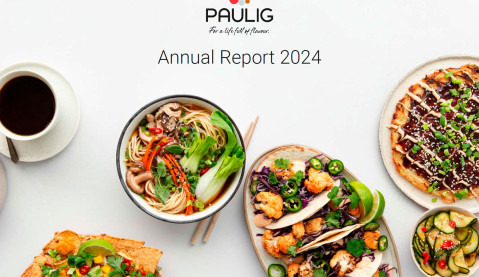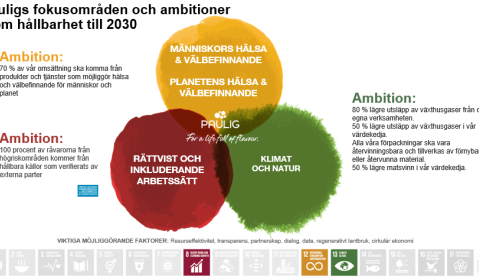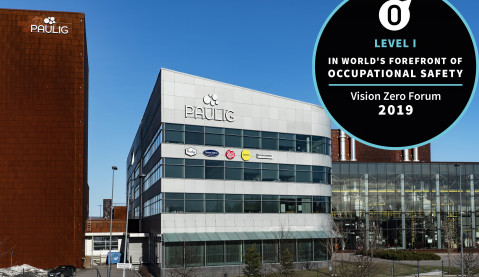At Paulig, sustainability is part of our daily work, and practical actions are a responsibility of the business management. The commitment to our ambitions starts with our Board of Directors. The Board approves focus areas and targets for our sustainability work and is updated biannually on the implementation work. Finally, the responsibility for our sustainable development work is with Paulig Leadership Team where the sustainability work is led by the SVP, Communications & Sustainability. The CEO and Board review and approve the policies and key projects and objectives related to sustainable development.
The sustainability team led by the Director, Sustainability and Public Affairs leads and guides our actions towards our aim of being a sustainable frontrunner of the food industry. The sustainability team is responsible for sustainability strategy planning and development, identifying key development areas and creating shared objectives for all Paulig functions, monitoring the progress of the plans and measuring the results. They support the rest of the organisation in their joint sustainability work and linking it with daily business operations. In addition, they manage stakeholder cooperation and reporting.
Continuous sustainability work is integrated into and implemented according to the roadmaps in the Paulig Business Functions and Business Areas. A Sustainability Management Group with representatives from different business functions and business areas was set up in 2021. The Group meets quarterly to oversee the implementation of the sustainability initiatives and alignment with business activities.
Our sustainability work is based on the UN Sustainable Development Goals, and it is steered according to our Sustainability Governance Model. Sustainability topics are reviewed regularly throughout the organisation, as defined in our Sustainability Governance Model.
Building an ethical business culture
Paulig has strong brands, and consumers and customers trust the company. To maintain these valuable assets, we are committed to a highly ethical way of operating. Our ethical principles set the standard for all employees, and all suppliers must commit to the Paulig Code of Conduct for Suppliers. The ethical principles are supported by following Paulig-level policies and management systems:
- Human rights principles
- Paulig Code of Conduct for Suppliers
- Paulig Group Corporate Governance
- Paulig Group Modern Slavery Statement
- Environmental management systems
- Food safety and quality policy
- Health & safety management systems
- Paulig Group Enterprise Risk Management Policy
- Paulig Deforestation Policy
- Paulig’s Diversity, Equity and Inclusion Policy

Training and communicating
All of our employees complete an online training on our ethical principles. The training is available in six languages (Dutch, English, Estonian, Finnish, Russian and Swedish) to serve our employees in all the countries where we have operations. The purpose of the training is to ensure the execution of our principles and related practices in our methods and daily work.
We pay special attention to the continuous development of the competence of those working with sustainability, quality and sourcing. We also make sure our Paulig Leadership Team and the Board of Directors are frequently updated on topical sustainability issues and questions.
Intervening in issues
We want our employees and other stakeholders to feel comfortable with voicing concerns regarding behaviour that is not in line with our values and ethical principles. Paulig’s personnel in all operating countries as well as external stakeholders can raise possible issues anonymously through a whistleblowing tool maintained by a third party and available in five languages. Any possible breaches and non-conformities are evaluated and investigated by a team appointed from members of Paulig Leadership Team. Their actions are logged, and handling is confidential. A person reporting a genuine suspicion or raising a concern will not be at risk of suffering any form of sanction or personal disadvantage as a result. Cases are reported annually to Paulig’s Board of Directors.
If we observe any issues in our supply chain, we intervene immediately and create an action plan together with our partner.

Managing risks and opportunities
Risks and opportunities are monitored and updated annually. Policy updates are proposed and approved by Paulig’s Board of Directors. Key risks and opportunities are identified and managed as part of business operations. Risk management covers strategic, operational and hazard risks. Our most important sustainability risks and opportunities were carefully identified and considered when the new sustainability approach was created. Together with our general risk management, implementation of our sustainability programme is the key instrument for mitigating risks and, on the positive side, benefitting from the opportunities. The new sustainability governance model will strengthen the systematic monitoring and governance of sustainability risks.
Safe and sustainable products
As a food and beverage company, product safety and quality are focal issues for us. We assess these risks proactively as well as sample and analyse incoming raw materials, which allow us to ensure that our raw materials and products meet our high requirements for quality. Supplier management, including risk-based audits, are important preventative activities mitigating the risk of food safety or quality problems.
Climate change and the loss of biodiversity
Climate change is the most significant long-term sustainability risk for Paulig. As a result of climate change, evolving and extreme weather conditions, such as drought, heavy rains and heat waves, as well as increasing water stress and decreasing biodiversity may cause severe impacts on farming conditions and the availability of our important raw materials. This is particularly the case for sensitive crops such as coffee. Our biggest climate impacts are in our value chain and linked to the raw materials we use in the manufacture of our products (e.g. green coffee, wheat). Therefore, we focus our climate actions on working with current suppliers and partners to adopt more sustainable farming practices that improve biodiversity, look for new raw materials and partners as well as search for new business models that further support the circular economy.
In early 2022, Paulig published a Deforestation Policy where we commit to working collaboratively to eliminate commodity related deforestation from our supply chains as part of our sustain- ability approach.
Respecting human rights
We are committed to respecting all internationally recognised human rights. Our most significant human rights risks are in our supply chain, such as fair remuneration, excess working hours, forced or child labour and discrimination. Production of some of our raw materials such as coffee and spices often relies on low-skilled, seasonal and migrant workers, which can further increase the risk of modern slavery. We have zero tolerance regarding any violations of human rights. For Paulig, it is important to thoroughly understand our own impacts on human rights, and how to approach and manage the risks. This work, including developing our human rights due diligence processes, will continue to be of special focus for Paulig. Read more here.
Work safety
Employees’ health and safety is of high importance to us. In improving safety and averting risks, a proactive and preventative approach is the most relevant tool. This includes, for example, continually increasing our employees’ safety awareness, assessing and observing risks systematically, and inspecting and auditing our safety practices. We are happy about the positive trend in health and safety of our employees, but also acknowledge that this area must be a high priority focus for us also in the future. We want to have a common safety culture to ensure a safe and healthy workplace for all. This involves all of us working together to create a safe workplace.


